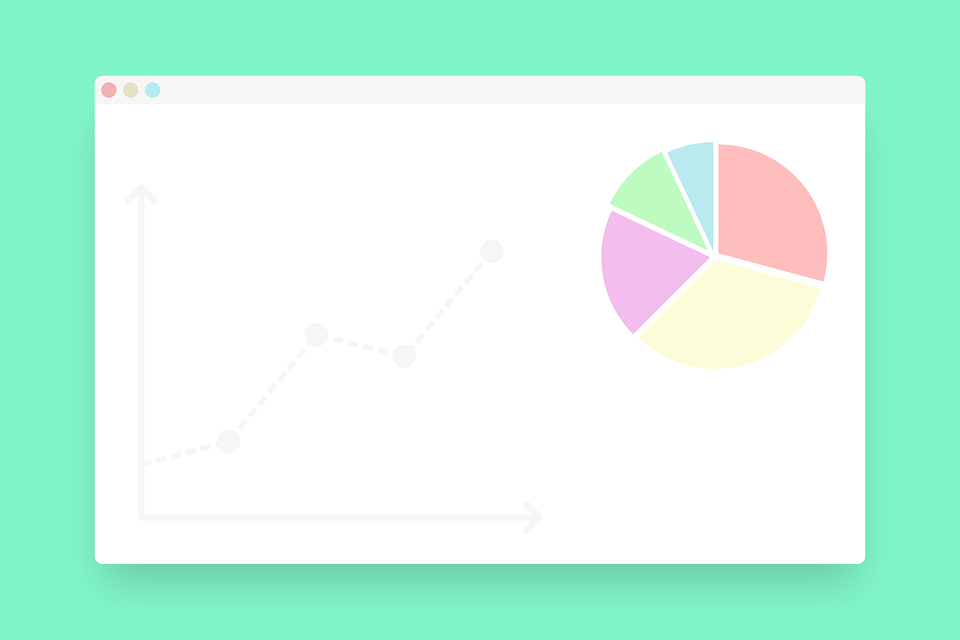The majority of businesses know the significance as well as the basic idea behind SEO (search engine optimization), the method of getting a domain name to come up at the front of SERPs to make it simpler for users to locate and employ a business. However the more into the procedure of search engine optimization you get, the less understandable best methods become. This is especially true of domain search engine optimization keyword practices – making use of keywords in domain names of website in order to perk up the search engine ranking. Several businesses have doubts regarding the impact that keywords have on a SERPs of a company, whether containing a keyword in a site url is essential for improved ranking, and how to select a domain name for search engine optimization.
Google makes use of nearly 200 different factors for a website ranking. Basically, it does not matter how precise the number is. The total extent of it is still frightening, particularly for a person who just begun to rank their website. However, the solution is here. Not all those aspects are equally significant. In fact, some methods are must have however others might not have much useful. If you recently introduced your website and attempt to discover what features of search engine optimization you should concentrate on first, here is the solution for you. Here is the list of some important factors that will help you to improve your domain name ranking on leading search engines.
On-Page factors
The method your website page is optimized has the most reflective impact on its rankings. Below mentioned some of the on-page optimization factors that are helpful to influence its search engine visibility:
Include Keyword within the title-tag: The title is said to be the strongest relevancy sign for leading search engines. The title meta tag itself is supposed to offer the precise narrative of the web page content. Search engines make use of it for showing the main title of search fallout. Adding a keyword within title tag will show to major search engines like Google or Bing what to rank the website page for. Preferably, the keyword has to be added at the beginning of the title Meta tag. Website pages that are optimized in this manner will rank great as compared to those with keyword nearer to the end of title tag.
Include Keyword within meta-description tag: It is usually a textual description that a web browser makes use in your website page search return. Imagine it as a window display for your website – an appealing and concise description of what is included within, with the objective of persuading people to enter. The significance of meta-description tag at present is frequently discussed in various channels. However, it’s still a major relevancy sign. Also, it’s vital to gain user clicks from SERPs (search engine results pages). Adding the keywords within meta-description tag makes it further related to a searcher and a search engine.
Add Keyword in H1 (heading 1) tag: H1 or heading 1 tag is one more vital relevance signal that cater as a description of the website pages content. Despite a fragmentary discussion regarding its significance, it’s yet a better practice to add your keyword within an exceptional H1 tag on your website page.
Making use of keywords in the webpage copy: Up until lately, stuffing your website page with loads of keywords was a certain method to boost its search engine ranking for a specific keyword. But, today it’s not a safe practice anymore. Employing a keyword in the webpage copy still transmit a relevancy signal of what your web page content is all about. But, how you put it, has transformed radically.
The length of the website content: Nowadays, searchers need to be learned and they don’t get satisfied with the core information. Hence, Google, seek informative as well as authoritative content to rank website first. And it’s sound that the longer your website content is, the better the possibility that you can cover further features of your subject. Hence, do not be timid of writing lengthy however highly valuable copy.
Duplicate content: Well, not all the aspects can affect your website rank in a constructive manner. Having related content across a number of web pages of your website can really harm your site ranking. It would be better to ignore duplication of content and create genuine copy for each and every website page.
Image Optimization: It’s not just text content that can be easily optimized on a web page however other media as well. For example, images can transmit the relevancy signals of search engine via their description, caption, and alt text.
Content Updates: Google algorithm gives priority to recently updated content. It doesn’t imply that you need to modify your website pages always. We consider that for commercial website pages, for example product descriptions, Google identifies the reality that they’re not time-sensitive like blog posts that covers latest events. But, it’s clever to add some tactics to modernize different kinds of content once in every year or so.
Canonical tag: At times, you are suggested to avoid having two domain names that contain similar content. One of the methods from stopping this from being a duplicate content problem is by making use of a canonical-tag on your website. Canonical tag does a simple and straightforward thing; it informs Google that one domain name is equal of another that evidently states that regardless of having 2 pages containing the similar content, they’re actually one.
Outbound links: Interlinking to authoritative web pages sends reliable signals to the major search engine. Imagine it in this way, the single reason why you would redirect a visitor to another website is if you needed them to learn more on the given topic. Well, this can be a great trust factor for search engines. But, plenty of outbound links, can considerably reduce the PageRank of a website page, that may harm its search visibility. Some of the Outbound links can influence your website rankings however employ them in restraint.
Internal links: linking website pages on your website can pass their potency among them.
Keyword in domain name: Adding the keyword within the domain name slug (that is the bit that seems after the dot com part of domain name) is considered to send another major relevancy sign to search engines.
Domain factors
Your url or domain name can really influence your ranking too. A few of the domain name signs are not as powerful as they supposed to be, there are some important things worth considering –
Country TLD extension: In case you attempt to aim a specific local marketplace, it’s considered as having a domain name with a country specific top-level domain (for example, .ie, .co.uk, or .pl) will aid to get better ranking for that specific location.
Length of Domain registration: Google considers url registered for more than one year as more reliable quote.
Domain history: Maybe you are not the single person of the planet who purchased and registered a domain name. And if your url has been punished in the history, its past might influence its recent rankings.
Off Page factors:
At the time of ranking your website pages, search engines seeks some of the factors beyond your website too. Here are a few most important ones.
The quantity of linking pages: Well, there might be a few links from a specific domain name to your website; their quantity is a major ranking factor as well. But, still it would be better to include further links from separate domain names rather from just one domain name.
The amount of linking domains: The amount of domain name linking is considered as one of the most significant ranking aspect.
Link relevancy: A few search engine optimizations think that links from website pages related to your website pages topic bring further relevancy for leading search engines.
Domain Authority or DA of linking page: In general, not all web pages are equivalent. Links to web pages with higher DA will be a leading factor compared to those on low DA. Hence, you must try hard to create links from higher domain authority sites.
Authority of linking domain-names: Typically, the authority of a domain name or url may be a leading ranking factor as well. For that cause, a link from low DA on a higher DA websites will have more value as compared to the website with lower DA.
Links from a website’s homepage: In the same way, a few SEO experts think that links from a website’s home page of a connecting domain name bring more strength compared to those domains on one of its web pages.
A number of nofollow vs. do follow links: Google officially said that they do not count no-follow links (many links included with rel=nofollow attribute). Hence, the amount of your do-follow links must influence your rankings as well.
The variety of types of link: The different types of links you create to your websites matters a lot as well. Plenty of links of similar kinds may be a sign of spammy links and may negatively affect your ranking.
Contextual links. It’s considered that links inside the content of the web page are worth more than those links within a sidebar.
Link anchor: A link’s anchor text is said to be a great ranking factor. At present, it can be used as a web spam sign that negatively impact your ranks.
Site factors:
Well, there are so many website wide factors as well that can influence the search visibility of your website. Some of those important factors are mentioned below –
Sitemap: Basically, a sitemap aids leading search engines to rank all the important website pages on your website. It’s the most efficient and easiest method to inform search engines what web pages your site consists of.
Domain trust: When it comes to ranking your website, trust matters a lot. It is quite difficult to believe that websites Google trusts the most should rank higher. But, the question is how do you create that trust? Obviously, building trust with major search engines of your domain name will surely pay off.
Server location: Some SEO professionals think that the location of a server assists to increase rankings for that specific region or country.
Google Search Console integration: Having your website certified at Google Webmasters Tools is considered to assists with your website indexing. Though, it’s not the instance, the tool gives precious data or information that you can employ for optimization your website better.
Mobile optimized website: Just one year before, nearly 46% of users employed mobile completely to research something. We think this number augmented exponentially in past one year. Unsurprisingly, having a mobile optimized website would influence rankings in some manner.


